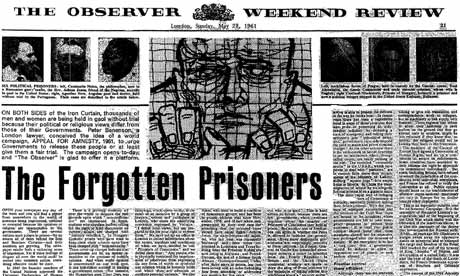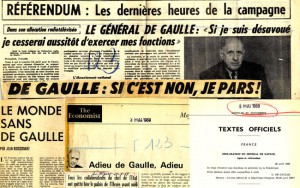The Future of European Turkey
Gerald Knaus and Kerem Öktem
17 June 2013
On Saturday night, central Istanbul descended into apocalyptic scenes of unfettered violence. The police targeted tear gas, water cannons and plastic bullets at protestors, and stormed a hotel near the park, which had set up a makeshift clinic to treat children and adults caught up in the events. Among those trapped in the hotel was the co-chair of Germany’s Green Party, Claudia Roth, who is an avid follower of Turkey’s politics, a witness to the decade of violence in the 1990s in the country’s Kurdish provinces, and politician who supported the Turkish government’s democratic reform process. Shaken and affected by the teargas fired into the hotel lobby, she described her escape from Gezi Park, which she had visited in a show of solidarity. “We tried to flee and the police pursued us. It was like war”.[1] She added the next day that it is the peaceful protestors in Gezi Park and elsewhere, braving police violence to stand up for the democratic right to speak out, who are providing the strongest argument for advocates of the future European integration of Turkey.
Only a few hours before Roth’s initial statement on Saturday, the protestors in the Gezi Park and Taksim Square were discussing the results of a meeting of their representatives with the Prime Minister, Recep Tayyip Erdoğan. Erdoğan seemed to have made some concessions and accepted part of the requests of the protestors to reconsider the construction scheme on Taksim and wait for a pending court decision. The Taksim Platform, the closest there is to a representative body of the protestors, had decided to take down the different tents of trade unions and political organizations and only leave one symbolic tent. Most protestors were getting ready for a final weekend in the park, before returning to their lives as usual. True, the Prime Minister had delivered a warning for the park to be cleared, but such warnings had been made before and passed without decisive action. The mood among the people in the park was to wind down the protests and consider new ways of political mobilization. So hopeful was the spirit on Saturday that families took their children to the park to plant trees and flowers and get a sense of what has arguably been Turkey’s largest and most peaceful civil society movement ever. No one was expecting a major crackdown. They have been proven terribly wrong.
Should they have listened to Egemen Bağış, Turkey’s EU minister and chief negotiator? On Saturday, well before the evening raid, he not only scolded international news channels like CNN and BBC for having made a “big mistake” by reporting the protests live and accused them for having been financed by a lobby intent on “doing everything to disturb the calm in our country.” He also declared that “from now on the state will unfortunately have to consider everyone who remains there [i.e. the Gezi Park] a supporter or member of a terror organization”.[2] In the last three weeks of the Turkey protests, we have already witnessed the Prime Minister turning to a progressively belligerent rhetoric for reasons of his power-political calculus. Now it appears that the Minister responsible Turkey’s European future has not only been aware of the massive police brutality that was to be unleashed on the peaceful protestors, but also that he fully endorsed it. No European politician, no representative of any European institution will be able to meet Mr Bağış from now on, without taking into consideration his justification of the breakdown and his inciting rhetoric, which confuses citizens pursuing their rights to free assembly with terrorists.
Within only a few hours, the government of Prime Minister Erdoğan has destroyed all hopes for a peaceful resolution of the conflict, which is now spreading all over the country. Yet no friend of Turkey would want to see the country descending into violence. So what remains as a possible way out of ever deepening polarization?
In recent weeks some members of the Justice and Development Party have publicly expressed their dismay at the unfolding events and the polarizing rhetoric of Erdoğan. President Abdullah Gül has voiced concern too, but he has stopped short of condemning the police violence and criticizing the Prime Minister openly. Gül is a respected politician and enjoys considerable public sympathy. Many have praised the President’s conciliatory style of politics. The time has come for him to show his statesmanship and to speak out clearly and forcefully against the abuse of power, which the government of the Justice and Development Party has been engaging in in recent days.
The president should in particular oppose the witch hunt against protestors and against the doctors and lawyers who have supported them. Such action may yet avert the country’s deterioration into further violence and polarization. The president would also do a great service for those, Turkey’s citizens and many European friends alike, who continue to believe in a common European future.
Gerald Knaus, European Stability Initiative, Berlin/Paris/Istanbul
Kerem Öktem, St Antony’s College, University of Oxford
PS: See also the appeal, in German and Turkish, just published by director Fatih Akin:
„Sehr geehrter Herr Gül,
ich schreibe Ihnen, um Sie über die Ereignisse vom Samstagabend zu informieren, da die türkischen Medien kaum bis gar nicht darüber berichtet haben.
Samstagabend wurden in Istanbul erneut hunderte von Zivilisten durch Polizeigewalt verletzt. Ein 14jähriger Jugendlicher wurde von einer Tränengaspatrone am Kopf getroffen und hat Gehirnblutungen erlitten. Er ist nach einer Operation in ein künstliches Koma versetzt worden und schwebt in Lebensgefahr.
Freiwillige Ärzte, die verletzten Demonstranten helfen wollten, wurden wegen Terrorverdacht festgenommen. Provisorische Lazarette wurden mit Tränengas beschossen.
Anwälte, die gerufen wurden, festgenommene Demonstranten zu verteidigen, wurden ebenfalls festgenommen.
Die Polizei feuerte Tränengaspatronen in geschlossene Räume, in denen sich Kinder aufgehalten haben.
Die bedrohten und eingeschüchterten türkischen Nachrichtensender zeigten währenddessen belanglose Dokumentarfilme. Diejenigen, die versuchen über die Ereignisse zu berichten, werden mit hohen Geldstrafen und anderen Mitteln versucht, zum Schweigen zu bringen.
Eine Trauerfeier für Ethem Sarisülük, der bei den Demonstrationen ums Leben gekommen ist, wurde verboten!
Stattdessen darf ein Staatssekretär hervortreten und alle Demonstranten, die am Taksim Platz erschienen sind, als Terroristen bezeichnen.
Und Sie, verehrter Staatspräsident, Sie schweigen!
Vor zehn Jahren sind Sie und Ihre Partei mit dem Versprechen angetreten, sich für die Grund- und Bürgerrechte eines jeden in der Türkei einzusetzen.
Ich möchte nicht glauben, dass Sie sich um der Macht wegen von Ihrem Gewissen verabschiedet haben. Ich appelliere an Ihr Gewissen: Stoppen Sie diesen Irrsinn!
Fatih Akin
Die türkische Version des offenen Briefes:Sayın Cumhurbaskanım,
Belki duymamissinizdir diye dusunerek yaziyorum.
Dun aksam saatlerinde yeniden baslayan polis siddeti sonucunda yuzlerce insan yaralanmıstir.
14 yasinda bir cocuk, polisin attigi biber gazi mermisiyle beyin kanamasi gecirdi. Ameliyatin ardindan simdi uyutuluyor. Hayati tehlikesi yuksek.
Yaralilara yardim etmek isteyen gonullu doktorlar, terorist diye gozaltina alınıyor. Revirlere gaz bombalarıyla saldırılıyor.
Gozaltina alinanlarin haklarini savunmak isteyen avukatlar gozaltina alınıyor.
Polis, kapali alanlarda gaz bombası kullaniyor. Bu yetmezmis gibi, insanlarin kendilerini korumak için taktigi basit gaz maskelerini cikarttiriyor. Sularina el koyuyor.
Tehdit ve gozdagiyla susturulan medya, belgesel yayinlamaya devam ediyor.
Gercekleri gostermeye calisanlar agir para cezalari ve baskilarla susturulmaya calisiliyor.
Milletvekilleri de polis siddetinden payina duseni aliyor.
Gosterileder polis kursunuyla oldurulen Ethem’in cenaze torenine bile izin verilmiyor.
Bir bakan cikip, Taksim Meydanda olan herkesi terorist ilan edebiliyor.
Polis hicbir ayirim gozetmeden halka tonlarca biber gazi, gazli su, plastik mermiyle mudahale etmeye devam ediyor.
Ve siz, susuyorsunuz..
Cok degil, on yil once, temel hak ve ozgurlukleriniz icin mucadele eden siz ve sizin partiniz… Bu halki en iyi sizin anlamaniz gerekmez mi?
Iktidar gomlegini giyen digerleri gibi vicdanınızı soyunup bir tarafa biraktiginizi dusunmek istemiyorum.
Vicdani olanlara sesleniyorum; bu vahseti durdurun!
Fatih Akin

Leader of the German Green Party Claudia Roth, attacked by tear gas
Her interview on what this means for Turkey-EU relations is here (in German)




